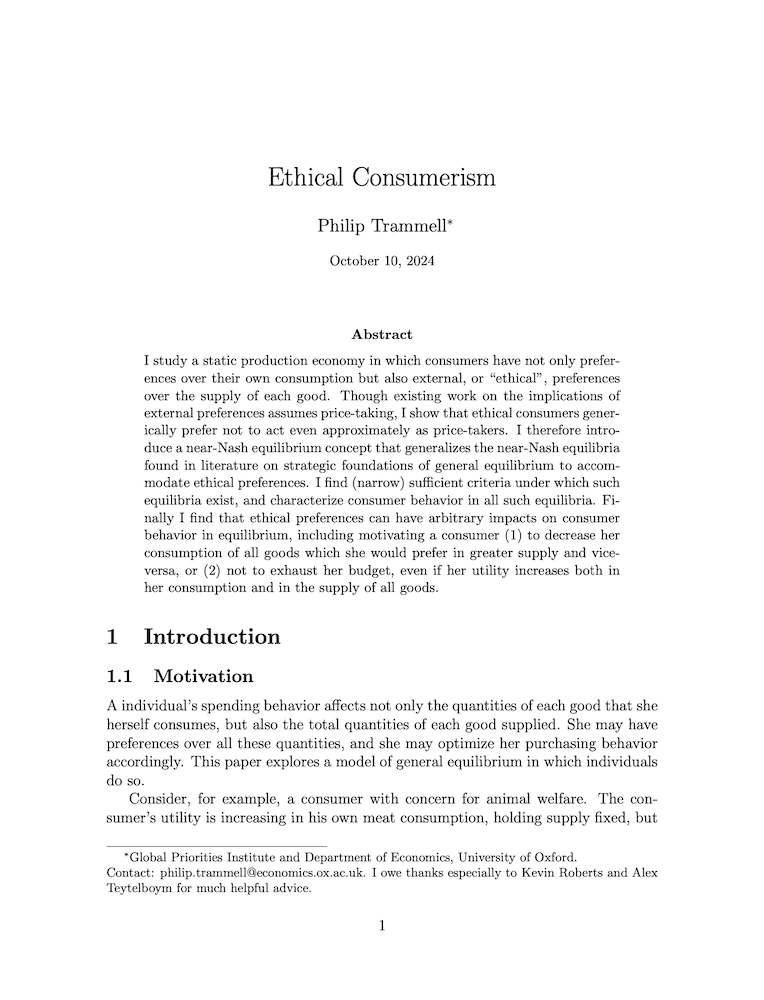Ethical Consumerism
Philip Trammell (Global Priorities Institute and Economics Department, University of Oxford)
GPI Working Paper No. 22-2024
I study a static production economy in which consumers have not only preferences over their own consumption but also external, or “ethical”, preferences over the supply of each good. Though existing work on the implications of external preferences assumes price-taking, I show that ethical consumers generically prefer not to act even approximately as price-takers. I therefore introduce a near-Nash equilibrium concept that generalizes the near-Nash equilibria found in literature on strategic foundations of general equilibrium to accommodate ethical preferences. I find (narrow) sufficient criteria under which such equilibria exist, and characterize consumer behavior in all such equilibria. Finally I find that ethical preferences can have arbitrary impacts on consumer behavior in equilibrium, including motivating a consumer (1) to decrease her consumption of all goods which she would prefer in greater supply and vice-versa, or (2) not to exhaust her budget, even if her utility increases both in her consumption and in the supply of all goods.
Other working papers
How to resist the Fading Qualia Argument – Andreas Mogensen (Global Priorities Institute, University of Oxford)
The Fading Qualia Argument is perhaps the strongest argument supporting the view that in order for a system to be conscious, it does not need to be made of anything in particular, so long as its internal parts have the right causal relations to each other and to the system’s inputs and outputs. I show how the argument can be resisted given two key assumptions: that consciousness is associated with vagueness at its boundaries and that conscious neural activity has a particular kind of holistic structure. …
Meaning, medicine and merit – Andreas Mogensen (Global Priorities Institute, Oxford University)
Given the inevitability of scarcity, should public institutions ration healthcare resources so as to prioritize those who contribute more to society? Intuitively, we may feel that this would be somehow inegalitarian. I argue that the egalitarian objection to prioritizing treatment on the basis of patients’ usefulness to others is best thought…
Should longtermists recommend hastening extinction rather than delaying it? – Richard Pettigrew (University of Bristol)
Longtermism is the view that the most urgent global priorities, and those to which we should devote the largest portion of our current resources, are those that focus on ensuring a long future for humanity, and perhaps sentient or intelligent life more generally, and improving the quality of those lives in that long future. The central argument for this conclusion is that, given a fixed amount of are source that we are able to devote to global priorities, the longtermist’s favoured interventions have…

